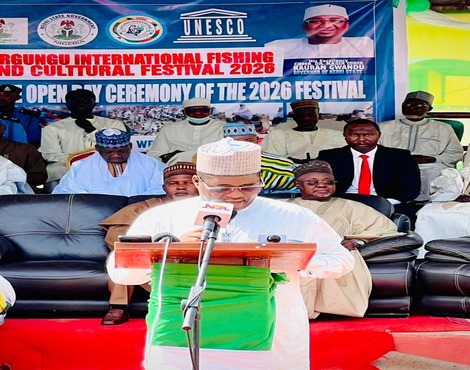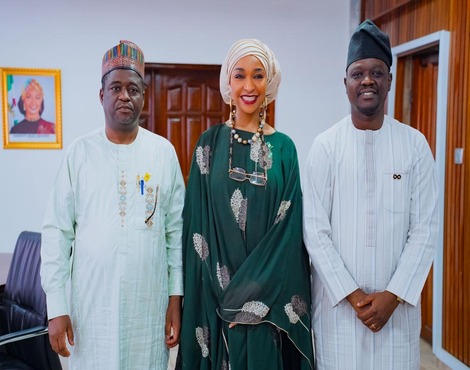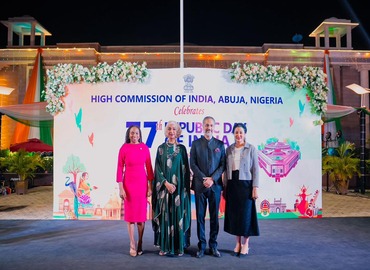G20: Nigeria’s Economy Set to Receive a Boost in Art, Culture, Tourism and Creative Economy Sectors
The recent G20 summit in Brazil has opened a new chapter for Nigeria, positioning the nation on the brink of a creative economic boom. As a guest country at this prestigious global gathering, Nigeria's participation at the G20 Culture Working Group Meetings and the subsequent follow-up meeting all the Brazil, led by the Honourable Minister of Arts, Culture, Tourism and Creative Economy, Barr Hannatu Musa Musawa, has set the stage for transformative opportunities in the art, culture, tourism and creative sectors. The Minister's extensive engagement during the summit, particularly at the Culture Working Group Meetings in Bahia and the G20 Leaders’ Summit in Rio de Janeiro, has laid the groundwork for fruitful collaborations that promise to invigorate Nigeria's economy.
The G20 summit, a veritable platform for world leaders and economic influencers, provided Nigeria with a unique opportunity to showcase its rich cultural heritage and creative potential. In her presentation, Minister Musawa expressed gratitude to Brazil for the invitation and highlighted Nigeria's commitment to advancing key priority areas within the creative economy. She emphasized the need for international support in addressing critical challenges that hinder the growth of Nigeria's art, culture, tourism, and creative sectors.
Among the challenges identified were the urgent need for funding and infrastructure development, access to modern technology and capacity building to empower local talents. The Minister's call for collaboration resonated with the G20 leaders, as she urged them to facilitate access to funding, technology and training initiatives. This collective effort, she argued, would not only help Nigeria achieve its cultural objectives but also contribute to global cultural sustainability.
The sideline engagements with nine countries, including Saudi Arabia, South Africa, Germany, China amongst others, have the potential to translate into significant economic benefits for Nigeria. These discussions are expected to lead to job creation, with estimates suggesting that partnerships in the creative economy could generate thousands of new jobs across various sectors. For instance, collaborations in tourism could create employment opportunities in hospitality, guiding services, and local crafts, while investments in the arts could stimulate job growth in creative industries such as film, music and fashion.
Foreign Direct Investment (FDI) is another promising outcome of Nigeria's participation in the G20. The Minister's discussions with international development partners are anticipated to attract substantial investments, with estimates suggesting that these collaborations could bring in billions of naira into the Nigerian economy in the next five years. Such investments would not only enhance infrastructure but also foster innovation and entrepreneurship within the creative sectors.
Moreover, the stimulation of the art, culture, tourism and creative economy sectors is expected to have a ripple effect on the broader economy. The backward and forward linkages created through these sectors will contribute to income generation, with projections indicating a significant increase in revenue from tourism and cultural exports. As Nigeria enhances its cultural diplomacy and strengthens ties with other nations, the potential for increased tourism revenue becomes evident, with estimates suggesting that a thriving tourism sector could contribute billions to the Gross Domestic Product (GDP).
Therefore, there is no gainsaying the fact that Nigeria's participation in the G20 summit has positioned the nation at the forefront of a creative economic boom. The Honourable Minister's proactive engagement and advocacy for support in critical areas have set the stage for transformative collaborations that promise to revitalize Nigeria's art, culture, tourism and creative economy sectors. As the nation embarks on this journey, the collective efforts of the G20 countries will be instrumental in unlocking Nigeria's vast potential, fostering job creation, attracting foreign investment, and ultimately contributing to sustainable economic growth. The future is bright for Nigeria, and the time to harness this momentum is now.
Jonathan Embale
Cultural and Diplomatic Affairs Analyst



